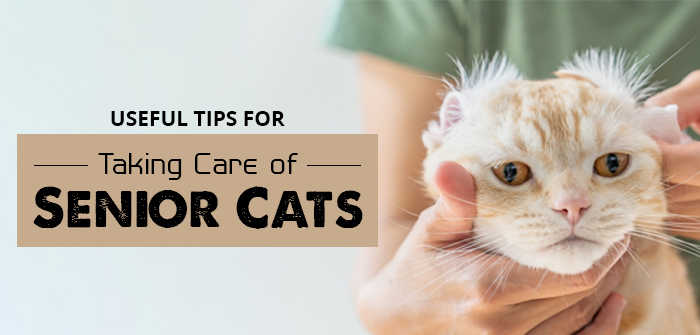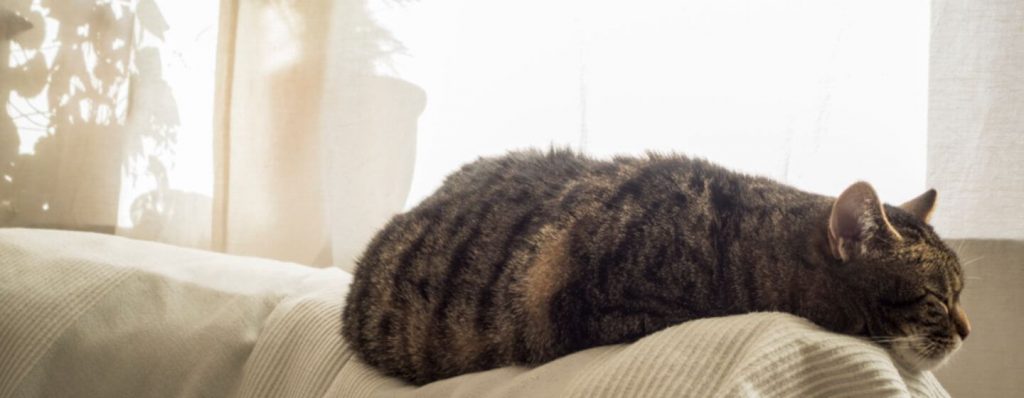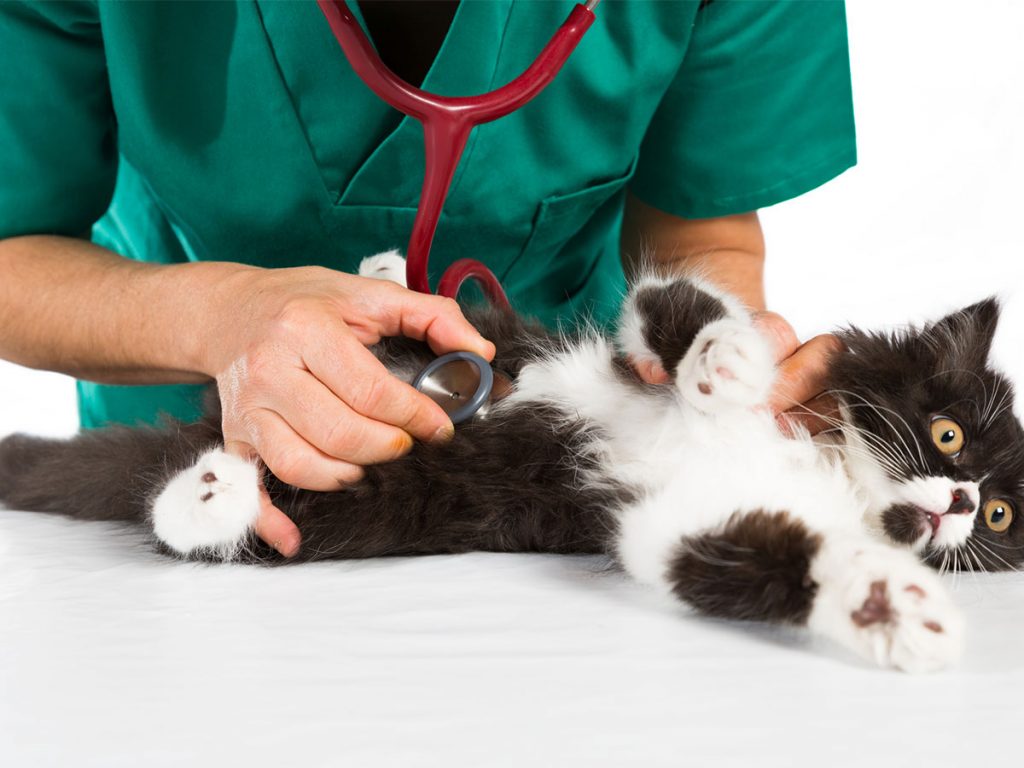Useful Tips For Taking Care of Senior Cats
The time seems to go so quickly when your feline pets grow so fast. But it’s sad to watch them get old. Just like humans, old age in cats brings them many sufferings and pain. Although you cannot stop from aging, you can reduce their pain by taking care of their health and wellness. In this blog, we will share with you healthy practices to make your cat live their best old life.

Moreover, they also suffer from several diseases in old age that requires our special attention and care. Senior pets needs to be taken to vet more often compared to younger age cats.
1 – Provide Right Nourishment
Taking care of your senior cat’s diet is crucial for their overall health and wellbeing. A well-balanced and nutritionally appropriate diet can help manage weight, increase lifespan, and reduce or eliminate pain. It is recommended to choose specially made food products for senior cats and consult with your veterinarian for the best diet plan. To ensure adequate hydration, it is best to feed senior cats wet food and provide multiple water bowls throughout the house. Feeding smaller amounts, 3 to 4 times a day, can also assist with easier digestion.
2 – Risk of Disease in Senior Cats

As cats age, they become more susceptible to a range of health issues and diseases. While it is not possible to prevent your cat from aging, there are steps you can take to support their overall health and minimize the risk of age-related health concerns. Below are few diseases that are commonly susceptible to senior cats:
- Arthritis
- Constipation
- Deafness
- Kidney Disease
- Cancer
3 – Identify Signs of Illness in Senior Cats

Here are several signs that indicate your senior cat may be in need of special attention or medical care. Some common signs to look out for include:
- Changes in behavior or activity levels – a decrease in activity or changes in sleeping habits could indicate pain or discomfort.
- Decreased appetite – a loss of appetite or changes in eating habits can be a sign of underlying health issues.
- Weight loss or gain – sudden changes in weight can be an indicator of a health problem.
- Increased thirst or urination – this can be a sign of kidney disease, diabetes, or other conditions.
- Oral health problems – bad breath, yellow teeth, or difficulty eating could be indicators of dental problems or other underlying health issues.
- Changes in grooming habits – a decrease in grooming can indicate a physical problem or discomfort.
- Increased vocalization – excessive meowing or crying could indicate pain, discomfort, or a change in surroundings.
If you notice any changes in your senior cat’s behavior or physical appearance, it is important to consult with a veterinarian as soon as possible to ensure proper care.
4 – Regular Health Check Ups

As cats grow older, they require increased attention and frequent check-ups. According to veterinarians, senior cats should undergo a comprehensive health examination at least twice a year. In some cases, more frequent check-ups may be necessary if the cat is already suffering from a disease or health condition.
A complete veterinary health check-up is extremely beneficial for your cat. It can help detect serious diseases such as arthritis, heart disease, kidney disease, and more. Early detection of these conditions will allow you to take the necessary measures in a timely manner to support your cat’s health.
5 – Role of a Responsible Parent to Senior Cat

As a caregiver to a senior cat, your primary responsibility is to provide comfort and attentiveness to their changing needs. As your cat ages, their dietary needs and energy levels may change, but they still require essential things like a mentally stimulating environment, a comfortable place to rest, and plenty of love and affection. Here are some important considerations for being a responsible pet parent to a senior cat:
- Ensure that sleeping and eating areas are easily accessible and comfortable for your cat.
- Administer any prescribed treatments and medications promptly and correctly.
- Modify the living environment to accommodate any physical challenges your cat may be facing.
By taking these steps, you can help ensure your senior cat continues to live a happy, healthy, and comfortable life.
In Conclusion
Taking care of senior cats includes lots of love, care and being attentive to your cat’s health. Remember that your cats have been your loyal companions for many years, they need your love and care at this stage the most.

